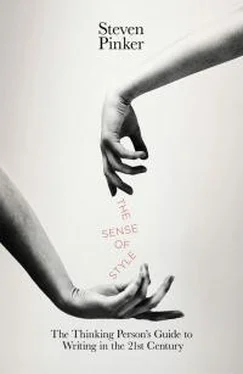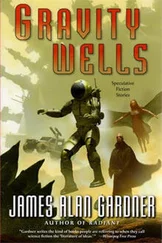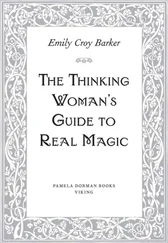What today’s doomsayers fail to notice is that the very trends they deplore consist in oral media—radio, telephones, and television—giving way to written ones. Not so long ago it was radio and television that were said to be ruining the language. More than ever before, the currency of our social and cultural lives is the written word. And no, not all of it is the semiliterate ranting of Internet trolls. A little surfing will show that many Internet users value language that is clear, grammatical, and competently spelled and punctuated, not just in printed books and legacy media but in e-zines, blogs, Wikipedia entries, consumer reviews, and even a fair proportion of email. Surveys have shown that college students are writing more than their counterparts in earlier generations did, and that they make no more errors per page of writing. 8And contrary to an urban legend, they do not sprinkle their papers with smileys and instant-messaging abbreviations like IMHO and L8TR, any more than previous generations forgot how to use prepositions and articles out of the habit of omitting them from their telegrams. Members of the Internet generation, like all language users, fit their phrasing to the setting and audience, and have a good sense of what is appropriate in formal writing.
Style still matters, for at least three reasons. First, it ensures that writers will get their messages across, sparing readers from squandering their precious moments on earth deciphering opaque prose. When the effort fails, the result can be calamitous—as Strunk and White put it, “death on the highway caused by a badly worded road sign, heartbreak among lovers caused by a misplaced phrase in a well-intentioned letter, anguish of a traveler expecting to be met at a railroad station and not being met because of a slipshod telegram.” Governments and corporations have found that small improvements in clarity can prevent vast amounts of error, frustration, and waste, 9and many countries have recently made clear language the law of the land. 10
Second, style earns trust. If readers can see that a writer cares about consistency and accuracy in her prose, they will be reassured that the writer cares about those virtues in conduct they cannot see as easily. Here is how one technology executive explains why he rejects job applications filled with errors of grammar and punctuation: “If it takes someone more than 20 years to notice how to properly use it’s, then that’s not a learning curve I’m comfortable with.” 11And if that isn’t enough to get you to brush up your prose, consider the discovery of the dating site OkCupid that sloppy grammar and spelling in a profile are “huge turn-offs.” As one client said, “If you’re trying to date a woman, I don’t expect flowery Jane Austen prose. But aren’t you trying to put your best foot forward?” 12
Style, not least, adds beauty to the world. To a literate reader, a crisp sentence, an arresting metaphor, a witty aside, an elegant turn of phrase are among life’s greatest pleasures. And as we shall see in the first chapter, this thoroughly impractical virtue of good writing is where the practical effort of mastering good writing must begin.

Chapter 1
Good Writing
REVERSE-ENGINEERING GOOD PROSE AS THE KEY TO DEVELOPING A WRITERLY EAR
Education is an admirable thing,” wrote Oscar Wilde, “but it is well to remember from time to time that nothing that is worth knowing can be taught.” 1In dark moments while writing this book, I sometimes feared that Wilde might be right. When I polled some accomplished writers about which style manuals they had consulted during their apprenticeships, the most common answer I got was “none.” Writing, they said, just came naturally to them.
I’d be the last to doubt that good writers are blessed with an innate dose of fluency with syntax and memory for words. But no one is born with skills in English composition per se. Those skills may not have come from stylebooks, but they must have come from somewhere.
That somewhere is the writing of other writers. Good writers are avid readers. They have absorbed a vast inventory of words, idioms, constructions, tropes, and rhetorical tricks, and with them a sensitivity to how they mesh and how they clash. This is the elusive “ear” of a skilled writer—the tacit sense of style which every honest stylebook, echoing Wilde, confesses cannot be explicitly taught. Biographers of great authors always try to track down the books their subjects read when they were young, because they know these sources hold the key to their development as writers.
I would not have written this book if I did not believe, contra Wilde, that many principles of style really can be taught. But the starting point for becoming a good writer is to be a good reader. Writers acquire their technique by spotting, savoring, and reverse-engineering examples of good prose. The goal of this chapter is to provide a glimpse of how that is done. I have picked four passages of twenty-first-century prose, diverse in style and content, and will think aloud as I try to understand what makes them work. My intent is not to honor these passages as if I were bestowing a prize, nor to hold them up as models for you to emulate. It’s to illustrate, via a peek into my stream of consciousness, the habit of lingering over good writing wherever you find it and reflecting on what makes it good.
Savoring good prose is not just a more effective way to develop a writerly ear than obeying a set of commandments; it’s a more inviting one. Much advice on style is stern and censorious. A recent bestseller advocated “zero tolerance” for errors and brandished the words horror, satanic, ghastly, and plummeting standards on its first page. The classic manuals, written by starchy Englishmen and rock-ribbed Yankees, try to take all the fun out of writing, grimly adjuring the writer to avoid offbeat words, figures of speech, and playful alliteration. A famous piece of advice from this school crosses the line from the grim to the infanticidal: “Whenever you feel an impulse to perpetrate a piece of exceptionally fine writing, obey it—wholeheartedly—and delete it before sending your manuscript to press. Murder your darlings .” 2
An aspiring writer could be forgiven for thinking that learning to write is like negotiating an obstacle course in boot camp, with a sergeant barking at you for every errant footfall. Why not think of it instead as a form of pleasurable mastery, like cooking or photography? Perfecting the craft is a lifelong calling, and mistakes are part of the game. Though the quest for improvement may be informed by lessons and honed by practice, it must first be kindled by a delight in the best work of the masters and a desire to approach their excellence.

We are going to die, and that makes us the lucky ones. Most people are never going to die because they are never going to be born. The potential people who could have been here in my place but who will in fact never see the light of day outnumber the sand grains of Arabia. Certainly those unborn ghosts include greater poets than Keats, scientists greater than Newton. We know this because the set of possible people allowed by our DNA so massively exceeds the set of actual people. In the teeth of these stupefying odds it is you and I, in our ordinariness, that are here.
In the opening lines of Richard Dawkins’s Unweaving the Rainbow, the uncompromising atheist and tireless advocate of science explains why his worldview does not, as the romantic and the religious fear, extinguish a sense of wonder or an appreciation of life. 3
Читать дальше














